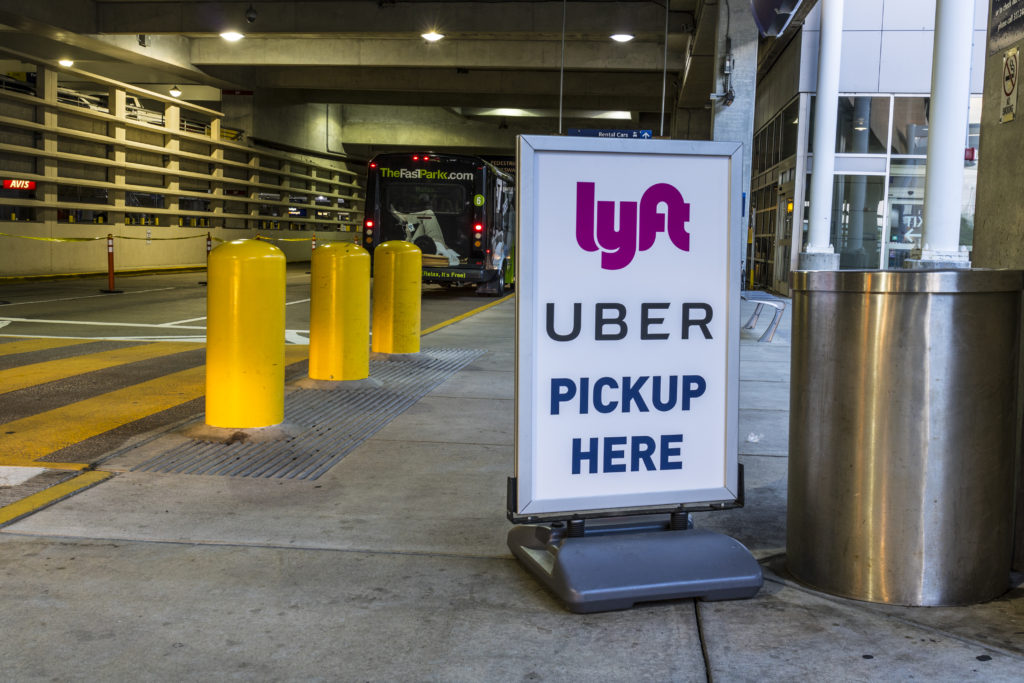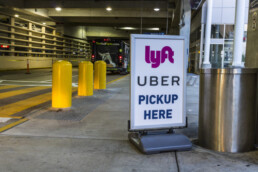Big Win in PA Court Case May Have Big Impact
A recent Pennsylvania Supreme Court decision may be a big win for all drivers who work for ride-hailing companies like Uber and Lyft. On July 27, 2020, the highest court in Pennsylvania held that a part-time Uber driver was not “self-employed,” The designation is significant because Uber has consistently argued in lawsuits across the country that drivers are independent contractors and self-employed, not employees.
By categorizing the estimated 2.6 million Uber drivers in the U.S. as being self-employed, Uber is not required to provide any federal or state benefits. In this case, however, the sole issue was whether his part-time work with Uber disqualified him from unemployment benefits because an applicant who engages in an independent business venture is not eligible for unemployment benefits. While the decision is not binding on other states, it could be a significant victory for all ride-hailing drivers as well as gig workers more broadly.

The case in Pennsylvania involves a laid-off behavioral specialist who started working for Uber part-time. The driver, however, was denied unemployment benefits because his part-time work with Uber was categorized as an “independent business venture.” The court, however, ruled that the driver was not self-employed because Uber had “significant control” over his work, and therefore eligible for unemployment benefits due to losing his full-time job as a behavioral specialist. The court acknowledged that drivers do have some autonomy such as setting work hours and rejecting rides, but overall, the court found that there were more significant aspects of the contract that Uber controlled. For example, Uber sets the rate for services, drivers cannot establish work relationships with passengers, and drivers cannot subcontract their work.
While the decision is good news for drivers, the court stopped short of saying the decision should be applied broadly because “individual decisions must be made in specific cases based upon the unique facts presented in each circumstance.” Similarly, the court did not hold that the driver was an “employee” of Uber, which is the question at the core of lawsuits across the country.
Currently, under federal and state laws, independent contractors are generally not eligible for certain employee benefits such as overtime pay, meal/rest breaks, and paid sick time. While that question remains unsettled, litigation is pending in California and around the world and millions of drivers wait anxiously for a favorable decision that would provide them with the benefits and protection they deserve under federal and state law.
FREE CONSULTATION
Srourian Law Firm, with locations in Los Angeles, Westwood, Woodland Hills, and Orange County is experienced in all aspects of employment law including the representation of ride-hailing drivers and have aggressively represented employees in Los Angeles, Hollywood, Santa Monica, Orange, Irvine, Anaheim, Santa Ana, Newport Beach, Costa Mesa, Fullerton, Tustin, Mission Viejo, San Clemente, Garden Grove, Laguna Niguel, Brea, Fountain Valley, Aliso Viejo, Yorba Linda, Westminster, Laguna Hills, Cypress, and La Habra.
If you or someone you know suffered employment violations as a ride-hailing driver, you may have certain employee rights under state and federal law, and may be entitled to compensation as a part of the class action lawsuit. Please contact us to speak with one of our lawyers for a free consultation.
FAQs on Arbitration

Often a job offer will include an employment contract that you are expected to sign. Understandably, as a prospective employee, you are anxious to be hired, so you may not give much thought to signing the contract. However, every employment contract will be unique, and you must be sure that the terms in the contract reflect the negotiations that lead to the job offer. More importantly, you need to make sure the contract is fair and your rights are protected by consulting with an experienced labor law attorney.
Q: What is arbitration?
A: Arbitration is a type of alternative dispute resolution that handles disputes without going to court. The dispute is decided by one or more neutral arbitrators after the parties present evidence and make arguments in an arbitration hearing. Some hearings also permit questioning witnesses. The rules of arbitration are less formal than a trial, but there are federal and state rules of arbitration that must be followed. Arbitration can be either binding or non-binding. In binding arbitration, the arbitrator’s decision may include an award for damages which is enforceable by law. In non-binding arbitration, the decision is merely “advisory” in nature, and the parties can either accept the decision, or pursue binding arbitration or a trial.
Q: What is an arbitration clause?
A: An arbitration clause is often included in agreements including employment contracts. The primary purpose of an arbitration clause is to require any dispute between the parties pursuant to the contract be settled by arbitration. In other words, if an employee alleges the employer has violated terms of the employment contract, the employee must resolve the dispute through arbitration instead of going to court. The arbitration clause, however, may designate arbitration as either “mandatory” or “voluntary.” Mandatory arbitration requires arbitration, while voluntary arbitration means the parties may chose arbitration by mutual agreement. Most employment contracts include a mandatory arbitration clause because employers generally prefer arbitration. Arbitration clauses can be complicated, and include many terms regarding venue, costs, procedures, scope of disputes, and selection of arbitrators. You should consult with an experienced labor law attorney before signing any arbitration clause to ensure your rights are protected. More importantly, your attorney can identify any unfair terms of the arbitration clause, and employment contract in general, and request modification.
Q: Should I sign an employment contract with an arbitration clause?
A: Whether you agree to an arbitration clause or not will depend on many factors, and you should consult with an experienced labor law attorney before signing any employment contract. You should realize that arbitration clauses, and employment contracts in general, are often written to favor the employer. With that said, your attorney can review the terms of the contract and advocate for your rights. Just as not all employment contracts are the same, arbitration clauses will differ as well. If you are asked to sign an employment contract, be sure to consult with an experienced labor law attorney, despite your eagerness to accept employment. You must protect your rights as an employee and take every step possible to ensure the terms of your employment are fair before signing an employment contract.
Q: Why do employers include arbitration clauses in employment contracts?
A: There are several reasons why employers prefer arbitration rather than a trial. First, arbitration is usually less expensive than a trial. Second, arbitration is considered a private resolution of a dispute between parties, and therefore would not be as public as a trial. Also, an unfavorable ruling against an employer would not be setting precedence for other employees, unlike case law. Third, many arbitration clauses in employment contracts prohibit employees from joining a class action lawsuit. Class action lawsuits are important to challenge wide-spread labor law violations, and employers discourage class actions which could result in significant legal fees, financial liability as well as bad publicity. Finally, because there is an inherent imbalance of bargaining power at the time of hiring, many employers use this advantage by including arbitration clauses that deprives employees of their rights to their day in court. This also provides an on-going advantage to the employer who knows that the employee is restricted by the arbitration clause.
FREE CONSULTATION
Srourian Law Firm, with locations in Los Angeles, Westwood, Woodland Hills, and Orange County is experienced in all aspects of employment law including employment contracts and arbitration clauses, and have aggressively represented employees in Los Angeles, Hollywood, Santa Monica, Orange, Irvine, Anaheim, Santa Ana, Newport Beach, Costa Mesa, Fullerton, Tustin, Mission Viejo, San Clemente, Garden Grove, Laguna Niguel, Brea, Fountain Valley, Aliso Viejo, Yorba Linda, Westminster, Laguna Hills, Cypress, and La Habra.
If you or someone you know suffered employment violations due to an unfair employment contract or arbitration clause, you may have certain employee rights under state and federal law, and may be entitled to compensation as a part of the class action lawsuit. Please contact us to speak with one of our lawyers for a free consultation.


